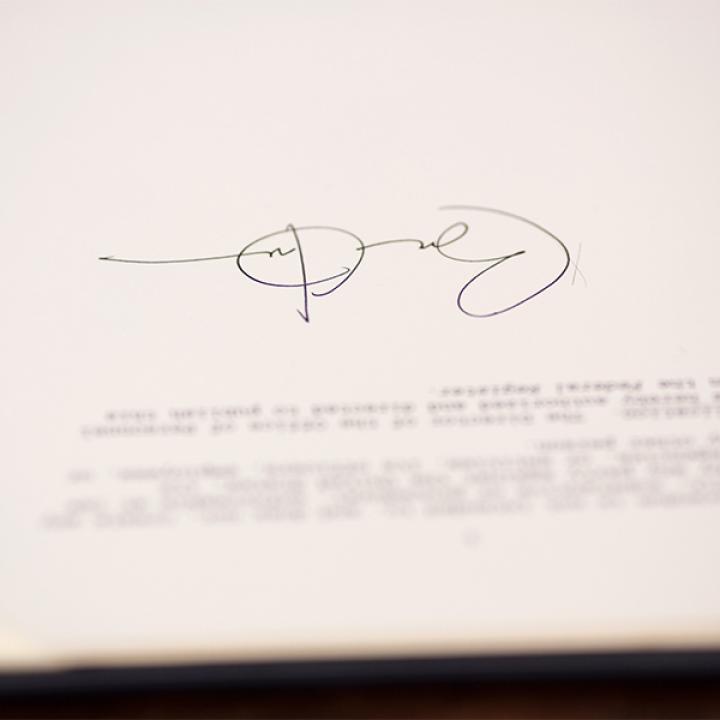
- Policy Analysis
- Articles & Op-Eds
What Obama's Letter to Khamenei Says About U.S. Policy Toward Iran

Any agreement to cooperate against ISIS without addressing Tehran's own contributions to regional instability would be a Faustian bargain.
That President Barack Obama apparently wrote to Iran's supreme leader regarding the nuclear negotiations and the U.S.-led campaign against Islamic State militants in Iraq and Syria is not, itself, of particular concern. The president is not incorrect in his reported view that it is Ayatollah Ali Khamenei, rather than Iran's more engaging and pragmatic president, Hasan Rouhani, who "will make all the final decisions on Iran's nuclear program" and regional policies. And engagement is a tool; like most tools, it should be wielded when appropriate, in combination with other tools, in support of a strategy, toward sensible ends -- not summarily ruled out.
What makes Mr. Obama's missive troubling is what it suggests about his strategy and ends with respect to Iran.
The president's letter reportedly had two aims: to convey that "any cooperation on Islamic State was largely contingent on Iran reaching a comprehensive [nuclear] agreement" and "to assuage Iran's concerns about the future of its close ally, President Bashar al-Assad of Syria." These messages appear designed to convey that the U.S. poses no threat to Iranian interests in Iraq and Syria and that Washington is willing to cooperate with Iran in both places in exchange for Tehran signing a nuclear deal by Nov. 24.
This message -- news of which came not long after a Wall Street Journal report that the Obama administration views its relationship with Iran as one of "detente" -- reflects a regional strategy in disarray. It implies that the U.S. sees Iran as a potential partner in Syria and Iraq when, in fact, Tehran is part of the problem: Iranian support for Mr. Assad has prolonged Syria's civil war, and its support for sectarian militias in Iraq has contributed to the alienation of Sunnis in that country and beyond.
Furthermore, this approach risks alienating our Arab allies and the Syrian opposition, whose support for the U.S. campaign against ISIS has been dampened by their concerns that Washington is tacitly bolstering Iran and Mr. Assad, whom they view as primary threats. The president's message is hard to square with his vision of an inclusive Iraq or his own explicit calls for Mr. Assad to step aside.
The implication that Washington is prepared to accommodate Iranian policies also relieves pressure on Tehran to undertake the strategic shift that, if the historical precedents of states abandoning nuclear weapons programs are any guide, is vital to a sustainable end to its nuclear ambitions.
A thaw between the U.S. and Iran could promote regional stability -- but only if such a positive development resulted from Iran tempering its regional ambitions and policies. Not so a Faustian bargain with Iran against Islamic State that leaves unaddressed Tehran's own contributions to regional instability. The Obama administration needs not another presidential letter but, more than ever, a Middle East strategy that effectively confronts the full range of threats to U.S. interests and rallies the support of allies.
Michael Singh is the Lane-Swig Senior Fellow and managing director at The Washington Institute. This article originally appeared on the Wall Street Journal's "Think Tank" blog.
Wall Street Journal



